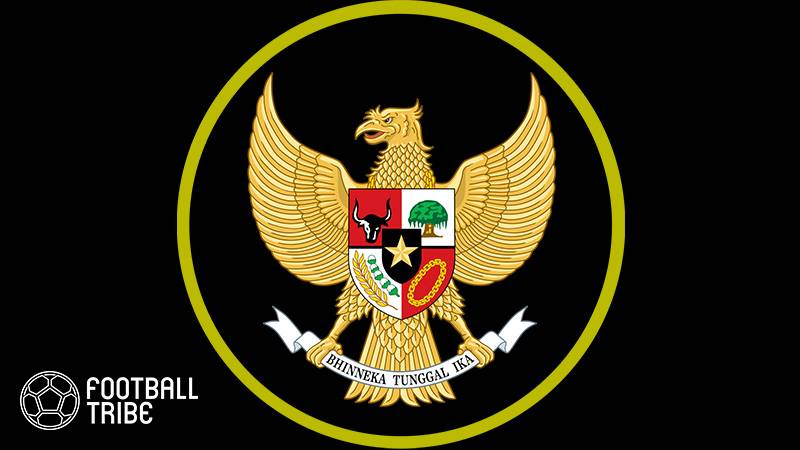
Indonesia’s journey in the 2024/25 AFF Championship came to an end after failing to progress beyond the group stage, finishing third in Group B after being beaten 1-0 by the Philippines at the Manahan Stadium in Solo on Saturday. Despite showing early promise, the team’s campaign was marred by defensive struggles, disciplinary issues, and an overall lack of consistency.
Fielding effectively their U-22 team with a select few senior team players for this year’s AFF Championship, Indonesia began their campaign on a positive note with a narrow 1-0 victory over Myanmar at the Thuwunna Stadium in Yangon on December 9th. However the victory was unconvincing, as Myanmar had Indonesia’s young guns frustrated throughout a good chunk of the match and only went down in the 76th minute after an Asnawi Mangkualam shot was deflected into the Myanmar goal by Nyi Nyi Aung.
The second match on December 12th saw Indonesia host Laos at the Manahan in a game that is practically winnable on paper. However, Laos exposed the young Timnas Garuda‘s defensive frailties, with their lack of experience playing against more seasoned opponents proved to be Indonesia’s undoing as they went behind twice throughout the match through a series of elementary errors, including conceding a 9th minute opener. Goals from Kadek Arel and Muhammad Ferrari did gave Indonesia some hope, but Marselino Ferdinan’s 69th minute red card following a second yellow allowed Laos to slowly find their way back in the game, which they did in the 77th minute through Peter Phanthavong. The match itself ended in a 3-3 stalemate – a disappointing result considering Indonesia were the heavy favorites.
A daunting trip to the Phu Tho Provincial Stadium in Viet Tri on December 15th came up next for Indonesia, as they took on Group B favorites Vietnam. Despite losing the game 1-0, Indonesia showed some improvements over their previous two matches as they frustrated a full-strength Vietnam side despite practically playing their third-string team, with Nguyen Quang Hai’s 77th minute winner the difference for Vietnam.
In the decisive final group stage match, Indonesia faced the Philippines on December 21st. The improvements shown in the Vietnam match became more apparent for this one, as Indonesia managed to repeatedly threaten the Filipino defense throughout the match. However, the Philippines’ compact midfield, coupled with the outstanding performance of goalkeeper Quincy Kammeraad, managed to keep Indonesia at bay. The Azkals also exploited the emotional immaturity of the Indonesia squad, with captain Amani Aguinaldo provoking Ferrari into fouling him, before enacting theatrics that prompted the referee to brandish a straight red card for the Persija Jakarta youngster.
A well-taken penalty from Bjorn Martin Kristensen gave the Philippines the lead after 63 minutes, following Dony Tri Pamungkas’ contentious handball within the area. Despite going down Indonesia kept on pressuring the Philippines, only for Kammeraad to deny the young Timnas Garuda time after time again, while the other Philippines players constantly attempted to rile up their Indonesian opponents in an attempt to throw them off their game. The plan worked, and Indonesia found themselves being rendered frustrated as they were unable to find their way past the Philippines, thus sealing their elimination as the Philippines accompanied group winners Vietnam into the knockouts.
So, what went wrong for Indonesia?
Firstly, Indonesia fielded a largely youthful team, blending players from the U-20 and U-23 squads with a handful of experienced veterans with Asnawi being the oldest player at 25 years old. While this approach aimed to develop talent for the future – as well as circumventing clubs’ reluctance to allow their best players to represent the national team due to the AFF being outside the FIFA matchday calendar – the lack of senior-level experience have affected the team’s performance in crucial moments, prominently in the matches against Myanmar, Laos, and the Philippines.
Indonesia’s defense, marshaled by Dony, Ferrari, and Kadek Arel, struggled to maintain stability, particularly in the draw against Laos. These lapses proved costly in a tightly contested group, and proved that the presence of defenders with the same caliber as Rizky Ridho and Jay Idzes were needed on the pitch to act as experienced mentor figures for the trio, showing how things should be done and providing a calming presence that could guide the team through the toughest of situations.
There’s also the fact that Indonesia suffered from the emotional immaturity of their own players, with the red cards received by Marselino against Laos and Ferrari against the Philippines proving to be costly for the Timnas Garuda in their respective matches. The fact that Marselino, someone with plenty of experience with the senior team, committed a needless foul even though he was already on a yellow, shows that even the most experienced members of Indonesia’s youthful AFF team are prone to reckless decisions without a proper senior figure acting as a mature presence within the team. And considering Asnawi’s previous track record of riling up oppositions and putting himself in situations that he shouldn’t have been at in the first place, having him as the senior figurehead on the pitch might’ve not been the wisest of decisions.
While the early exit is a setback, the decision to prioritize youth development reflects a long-term strategy for Indonesian football. The experience gained by younger players in the AFF Championship could serve as a valuable foundation for future competitions, such as the upcoming 2025 SEA Games, as well as establishing the backbone of future Indonesia senior national teams.
To build on this experience, Indonesia will need to address defensive weaknesses, improve discipline, and ensure a balanced mix of youth and experience in future squads. As the team reflects on their performance, fans will look forward to a stronger showing in upcoming tournaments.

